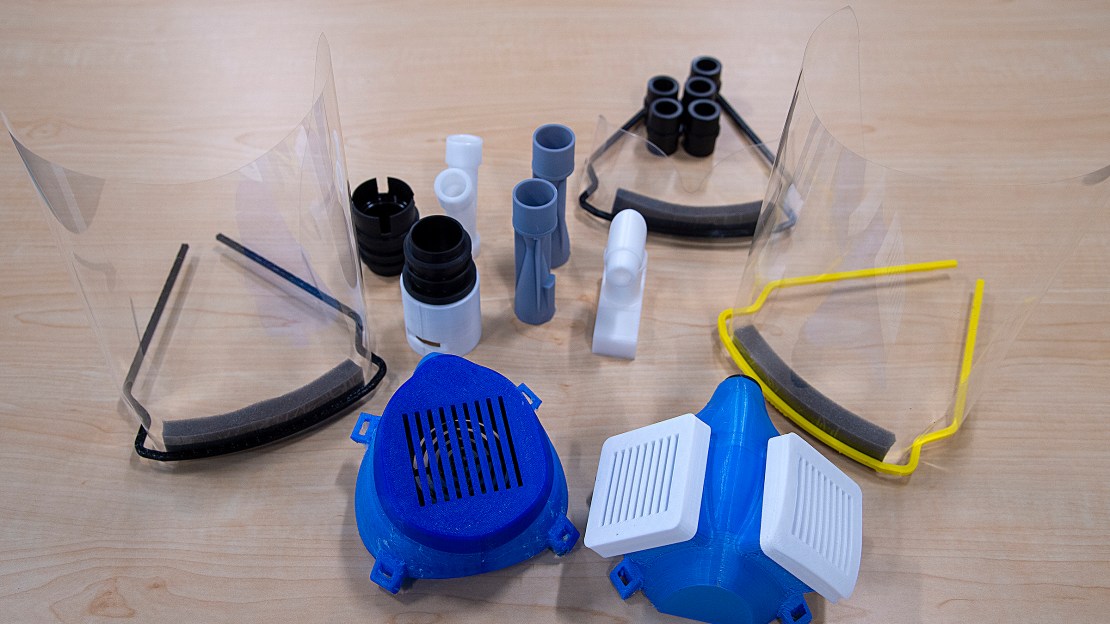BTN.com LiveBIG Staff, April 10, 2020
3D printers hum along. Advanced lasers make precise cuts. Important components take shape in injection molds.
At Purdue University?s various manufacturing facilities, it almost seems like business as usual, but it isn?t. The university is under lockdown and classes have moved online. However, the prototyping and manufacturing expertise and capabilities of the Boilermakers are not going to waste.
Faculty and staff members manthe machines producing PPE (personal protective equipment) for health care workers fighting to suppress the spread of the novel coronavirus.
Leading this effort is Prof. Nathan Hartman, who recently spoke with Purdue Today about how the all-volunteer project coalesced.
"Getting this done has been a lesson in persistence," said Hartman, the Dauch Family Professor of Advanced Manufacturing. "Two weeks ago, when a few people began sending each other emails about discussing this, it seemed like it wouldn't be possible. But people kept getting involved and offering their expertise and equipment, and within a week we began working on a plan, and now we have produced useful PPE for the health care community."
In all, the project involves 40 faculty and staff members from across Purdue's campus. They represent Purdue Polytechnic Institute, the College of Engineering, the College of Pharmacy and the School of Nursing, as well as Birck Nanotechnology Center, Ray W. Herrick Laboratories, the Bechtel Innovation Design Center and the Envision Center for Data Perceptualization.
They work closely with local hospitals, regional public health officials, and the Indiana University School of Medicine to determine what, where, and when specific doctors, nurses and first-responders need specific items.
The PPE produced includes face shields, protective goggles, N95 respirator masks and disposable ventilator attachments. The first delivery of these items to local facilities should happen this week.
In addition to Purdue?s production prowess, the team has used their design skills to solve one of the most vexing problems of our current crisis. Given the national shortage of disposable N95 masks, the team created a reusable model. The injection-molded plastic mask makes use of filter materials commonly found in a hospital. Once used, the filter panels can be disposed of and the mask itself easily sanitized.
Support for this project comes from Purdue University as well as Eastman Chemical, who supplied materials for the production of face shields and protective goggle lenses.







 See what's coming up live on B1G+ every day of the season at BigTenPlus.com.
See what's coming up live on B1G+ every day of the season at BigTenPlus.com. 